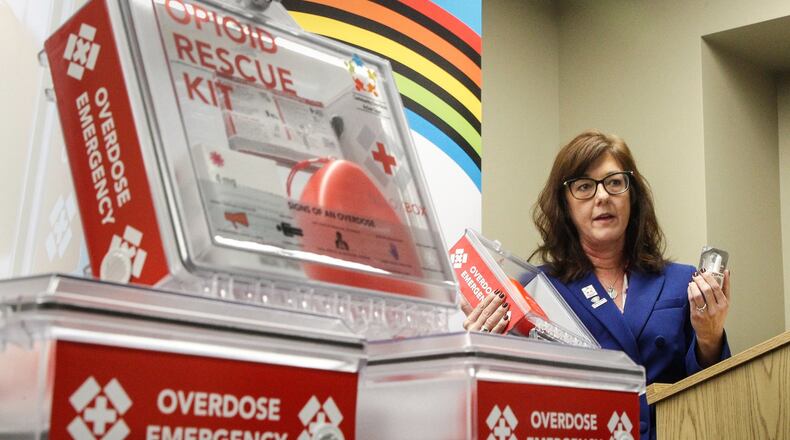Assuming the deal moves forward as proposed, the plan would require
- the Sackler family that’s behind Purdue to pay $4.325 billion over the next nine years;
- Purdue Pharma would reorganize into a new entity that helps combat the U.S. opioid epidemic;
- The company would have to make more than 30 million internal documents public as an accountability step;
- Thousands of individual victims of Purdue’s misconduct will also receive compensation as part of the bankruptcy process;
- The Sacklers would be banned from requesting or even permitted any new naming rights related to donations over the next nine years;
- Additionally, the resolution requires the Sacklers to relinquish control of family foundations — which will hold no less than $175 million in assets — to the trustees of a contemplated National Opioid Abatement Trust dedicated to abating the opioid crisis. Ohio will get 4.36% of the total amount received by the trust, based on a formula that looks at the toll of the crisis in each state.
The precise amount of money that would be distributed to each local government and when it would be received is unknown at this time. The Ohio Attorney General will work with the counties, who will work with the smaller political subdivisions in the county on divvying up the trust money.
However, the court approved a deadline of 4 p.m. Wednesday as the voting deadline on the plan, Beavercreek law director Stephen McHugh noted in a letter to city officials. McHugh recommended the city accept the plan. Bellbrook was expected to vote Monday night on a resolution to accept the plan.
Hamilton city law director Letitia Block said the city had voted in favor of the plan and believes the plan “represents a reasonable resolution of the city’s opioid-related claims against Purdue.”
“The alternative is to engage in risky and expensive civil litigation that will take years to fully resolve and which will result in delayed and inequitable recoveries among potential claimants,” Block said, adding that meanwhile the city would have received no resources toward abating ongoing problems.
The Associated Press reported the agreement from multiple state attorneys general, including those who had most aggressively opposed Purdue’s original settlement proposal, was disclosed late July 7 in a filing in U.S. Bankruptcy Court in White Plains, N.Y. It followed weeks of intense mediations that resulted in changes to Purdue’s original exit plan.
Still, nine states and the District of Columbia did not sign on. Purdue said in a statement that it will try to build “even greater consensus” for its plan.
Purdue first sought bankruptcy protection in 2019 as a way to settle about 3,000 lawsuits it faced from state and local governments and other entities, accusing it of fueling the addiction crisis with its marketing of an addictive painkiller.
The Sacklers are not admitting any wrongdoing and no court has found any by a family member.
“While I know this resolution does not bring back loved ones or undo the evil of what the Sacklers did, forcing them to turn over their secrets by providing all the documents, forcing them to repay billions, forcing the Sacklers out of the opioid business, and shutting down Purdue will help stop anything like this from ever happening again,” Massachusetts Attorney General Maura Healey, one of the first to sue, had said.
Purdue’s plan also calls for members of the Sackler family to give up ownership of the Connecticut-based company as part of a sweeping deal it says could be worth $10 billion over time. That includes the value of overdose-reversal drugs the company is planning to produce.
The opioid crisis includes overdoses involving prescription drugs as well as illegal ones such as heroin and fentanyl. Purdue’s bankruptcy case is the highest-profile piece of complicated nationwide litigation against drugmakers, distribution companies and pharmacies.
Trials against other companies in the industry are playing out in California, New York and West Virginia, and negotiations are continuing to settle many of the claims.
Associated Press contributed to this report.
The story so far: Purdue Pharma lawsuit
Previously: OxyContin maker Purdue filed for bankruptcy in 2019 to settle about 3,000 lawsuits, including from local governments in Southwest Ohio.
What’s new: Purdue, and the managing Sackler family, agreed to new concessions, which brought more parties onboard with the settlement. Local governments are now being presented with the terms and can vote yes or no.
What’s next: July 14 is the voting deadline on the settlement plan.
About the Author

